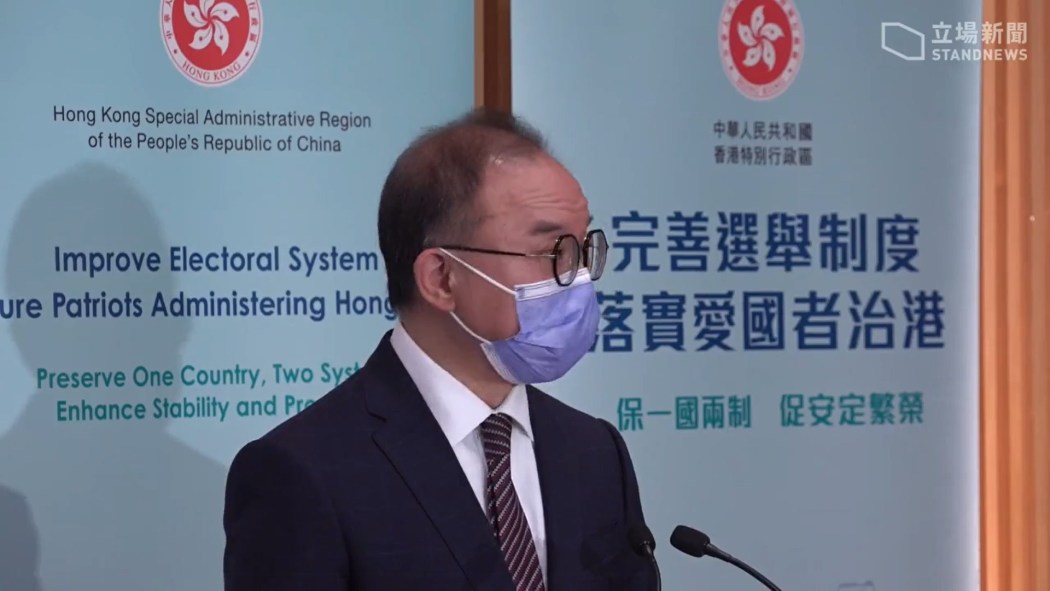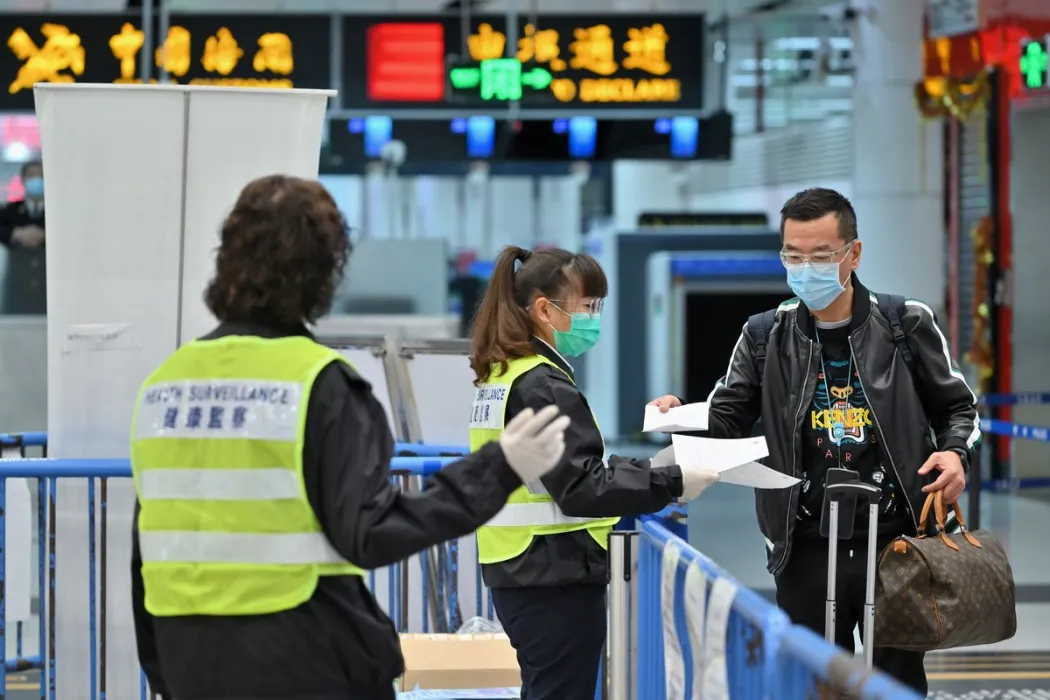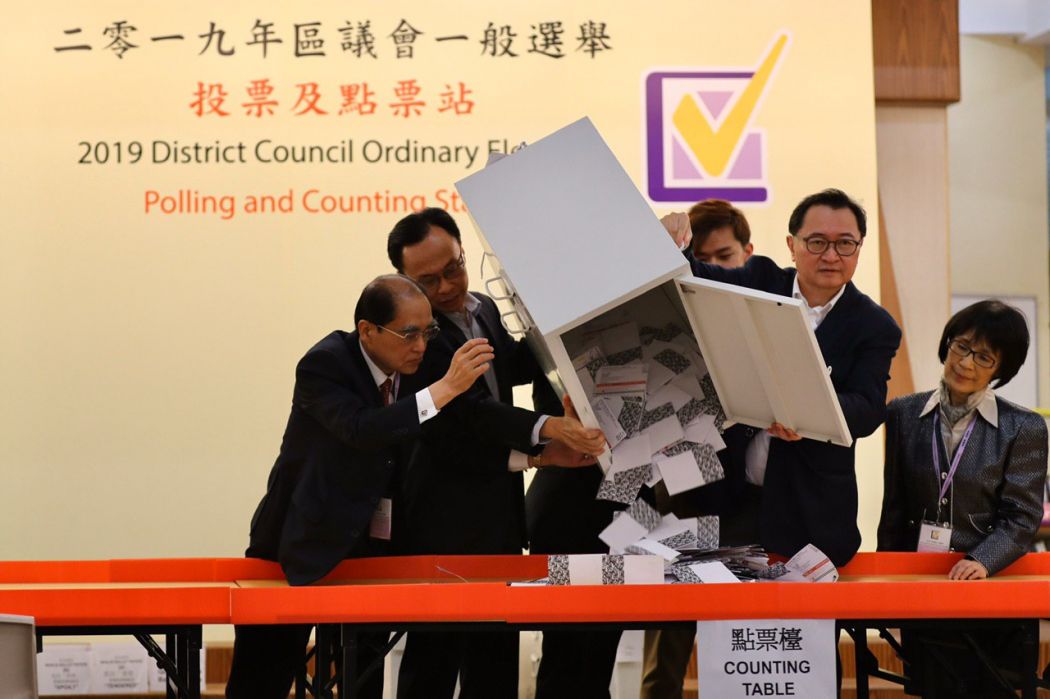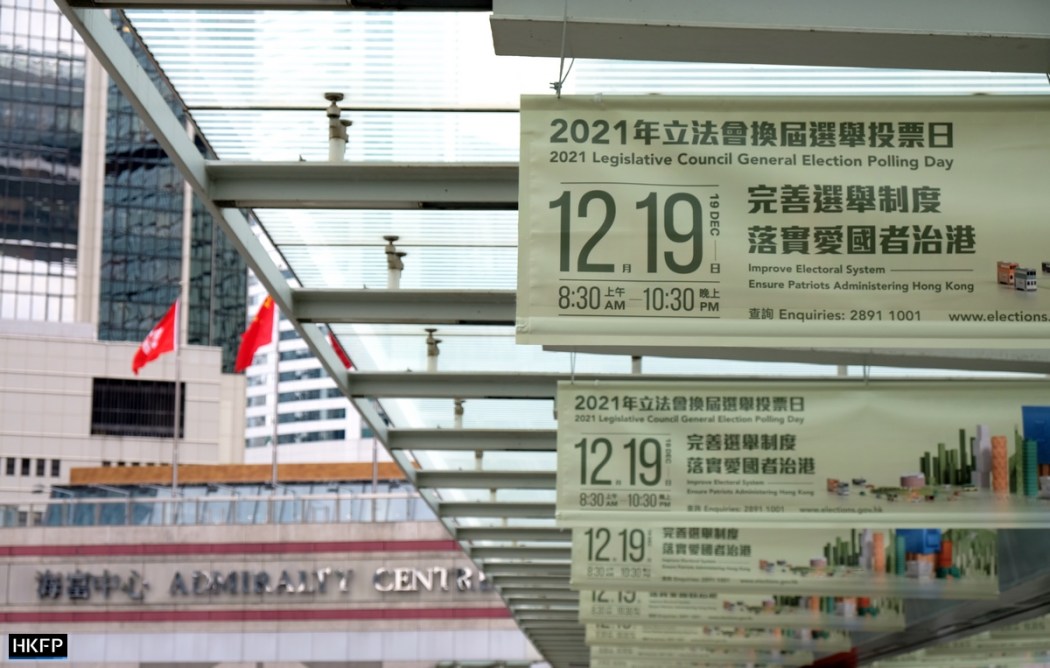Three voting stations will be set up at border control points between Hong Kong and mainland China at the Lo Wu, Lok Ma Chau and Heung Yuen Wai Boundary control points on election day to accommodate voters staying on the other side of the border. However, the public and media will not be allowed to observe vote counting at these stations, the government has announced.

Capped at accommodating a maximum of 111,000 voters, Hongkongers must register well in advance in order to secure a spot to cast their ballot at either one of the border control voting stations on the election day, Secretary for Constitutional and Mainland Affairs Erick Tsang said during a press briefing on Monday.
Hong Kong voters in the mainland who are able to present required identification documents, negative Covid-19 virus test results as well as successfully register via a website may cast their ballot on December 19 at the booths set up in a “fully closed loop”, Tsang said. They will be exempt from having to undergo hotel quarantine and from medical observation requirements in the mainland as long as they return to the territory immediately via the same control point after voting.
Only voters, candidates and their proxies assigned, as well as government electoral officers will be allowed entry to the three stations during the Legislative Council (LegCo) race, Tsang said. There will be no arrangement allowing members of the public or the media to observe vote-counting, although candidates or their proxies may apply to observe the counting process.
“I think this is sufficient to guarantee the fairness and transparency [of the vote counting,]” Tsang said.

Responding to reporters’ questions on how the government could enforce anti-corruption law should there be illegal efforts to influence voters on the mainland – such as canvassing on tour buses that shuttle voters to polling stations – Tsang said the Elections (Corrupt and Illegal Conduct) Ordinance is applicable to illegal acts occurring outside the city.
However, he did not respond to questions on how the government could monitor, gather evidence for prosecutions, or halt such activities from happening on the other side of the border.
He denied that the arrangement was meant to boost voter numbers, despite the election turnout expected to hit a record-low. “We did not consider this at all,” he said, adding that it was made only in response to what some voters have demanded.
‘Ordinarily resident’
Tsang also denied concerns that voters living in the mainland are not “ordinarily residing in Hong Kong,” as the rules require, and are therefore ineligible to vote.
Whether they remain eligible as a voter who ordinarily resides in the city would depend on the length and reason for their absence, whether they sometimes return, and whether they retain connections to the city, he said. The existing mechanism for verifying voter eligibility removes tens of thousands of voters from the electoral register annually because they are no longer considered as residing in the city, he said.

The special voting arrangement will only be made available to geographical and functional constituency voters, Tsang said, while those in the election committee constituency must head to the Wan Chai Convention and Exhibition Centre to cast their ballot.
Voters who wish to use these stations at border control points must register via a government website to secure a voting spot. Applications will be open between Wednesday at 9 a.m. until next Wednesday, December 8 at 8 p.m. Voters will be asked to provide their names, Hong Kong and mainland contact phone numbers, email, location of residence in the mainland, and their Home Return Permit or travel document numbers. These registration details will be transmitted to Hong Kong and mainland immigration as well as the health authorities for epidemic control purposes, Tsang said.
Successful registrations will be confirmed by SMS or by email.

On polling day, these voters must travel to the border, present a negative Covid-19 test obtained less than 48 hours before election day, show their Hong Kong identification card, their Home Return Permit or other travel documents, present a green “health code” from the mainland indicating that they have not recently visited any medium to high risk locations, and show the SMS or email proof of registration.
Individuals who visited high-risk zones 14 days before the election day will not be allowed in, while those who visited medium-risk zones over the same period will be allowed to vote using a dedicated walk-way and voting booth.
Voting quotas at the three border control voting stations – click to view.
- Lo Wu: 42,000.
- Lok Ma Chau: 36,000.
- Heung Yuen Wai Boundary Control Point: 33,000.
The government picked the three border control points as ballot stations since they are not currently in use, so voters will not come in contact with other travellers, leading to potential Covid-19 infection risks, the secretary said.
In March, 2021, Beijing passed legislation to ensure “patriots” govern Hong Kong. The move reduced democratic representation in the legislature, tightened control of elections and introduced a pro-Beijing vetting panel to select candidates. The Hong Kong government said the overhaul would ensure the city’s stability and prosperity. But the changes also prompted international condemnation, as it makes it near-impossible for pro-democracy candidates to stand.
Support HKFP | Policies & Ethics | Error/typo? | Contact Us | Newsletter | Transparency & Annual Report | Apps
Help safeguard press freedom & keep HKFP free for all readers by supporting our team

LATEST FROM HKFP
HKFP has an impartial stance, transparent funding, and balanced coverage guided by an Ethics Code and Corrections Policy.
Support press freedom & help us surpass 1,000 monthly Patrons: 100% independent, governed by an ethics code & not-for-profit.










